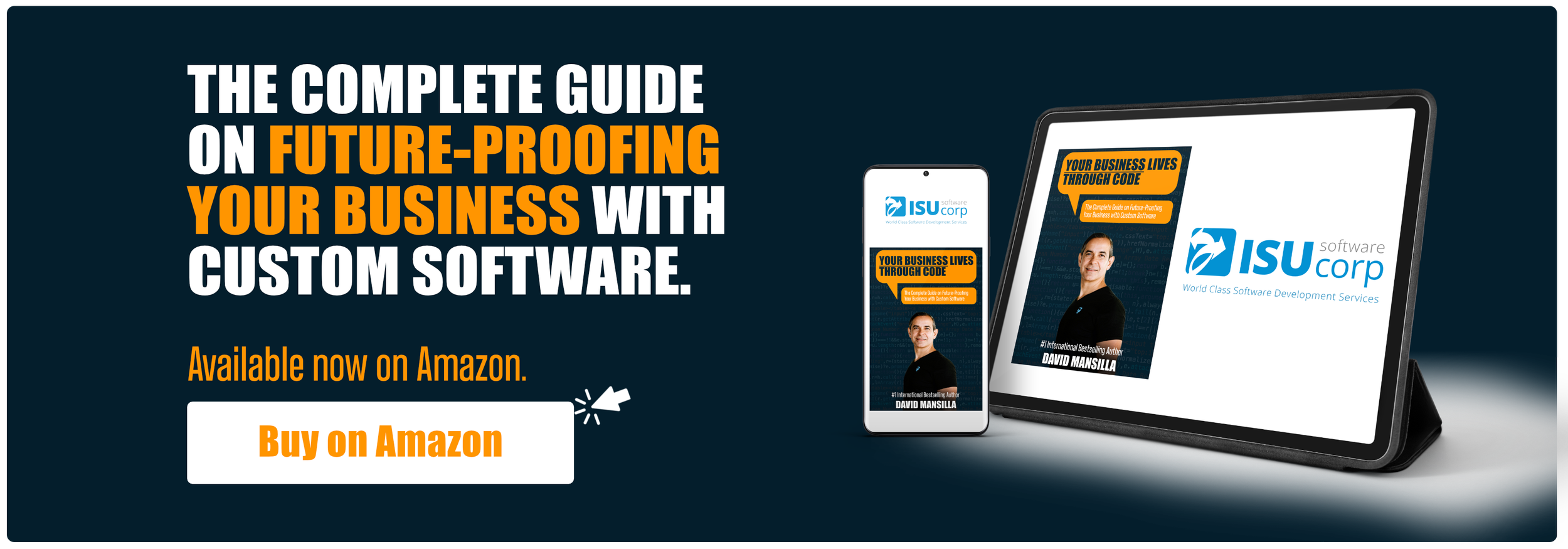Passion-Driven Pursuits: Creating Lasting Impact in Healthcare
Jeremy Toth
CTO at SpendMend
As the Chief Technology Officer (CTO) at SpendMend, Jeremy Toth is spearheading a transformative mission to revolutionize healthcare affordability. With a steadfast commitment to reducing the financial strain of healthcare, Jeremy and his team are actively reshaping the landscape of healthcare expenditure. Their core objective is crystal clear: to diminish the financial burden on patients by implementing innovative cost-saving strategies and fostering financial responsibility. Jeremy firmly believes that these efforts should translate into tangible benefits for consumers, ensuring that advancements in healthcare affordability are accessible to all. Their journey towards this noble goal is marked by innovation, particularly in the realm of automation. By harnessing the power of technology to streamline processes, Jeremy and his team are driving efficiency and making healthcare more accessible and cost-effective. For Jeremy, this is not just a job; it's a passion-driven pursuit aimed at creating a lasting impact on the world.
AI at the Forefront: SpendMend's Technological Revolution
At SpendMend, despite being a relatively small company with around 350 employees, its impact is substantial, particularly in the realm of healthcare service. With a modest IT team of approximately 30 members, comprising just under 10% of the workforce, the company has prioritized automation as a cornerstone of its operations. Through relentless efforts to automate manual processes, SpendMend leverages cutting-edge technologies, including generative AI, to drive efficiency and effectiveness in its services. This commitment isn't solely about reducing costs for clients; it's also about optimizing internal operations, ensuring that every resource is utilized effectively to deliver the best possible outcomes.
In the dynamic landscape of healthcare expenditure, SpendMend's focus on automation and technological innovation is not just a strategic choice; it's a necessity. By responsibly investing in AI-driven solutions, the company is not only driving down customer costs but also minimizing internal labor expenses. This approach allows SpendMend to operate leaner and more efficiently, ultimately enabling it to deliver greater value to clients and positively impact the broader healthcare ecosystem. As SpendMend continues to navigate this exciting journey, it remains steadfast in its dedication to revolutionizing healthcare affordability through the strategic integration of automation and technology.
Corporations and Technology As a Tool to Become Great Entrepreneurs
David quoted, “Corporations help to train great entrepreneurs especially, technology.” Aspiring business owners can refine their techniques and gain priceless experience in corporations. People can learn the nuances of market dynamics, managerial techniques, and business operations in these organized situations. Technology also serves as a catalyst, enabling business owners within organizations to innovate, optimize workflows, and take advantage of fresh opportunities. Through digital platforms, automation tools, or sophisticated analytics, technology gives business owners the tools they need to successfully navigate challenging business environments and spur expansion.
In the quickly changing business environment of today, corporate technology integration has emerged as a key element in supporting entrepreneurship. Corporate entrepreneurs now have unprecedented access to data-driven insights, worldwide networks, and disruptive ideas thanks to the ongoing advancements in technology. Through the strategic application of technology, entrepreneurs have the ability to break through conventional barriers, open up new markets, and invent ground-breaking solutions. In the end, the collaboration of technology and corporations pushes ambitious businesspeople to succeed by helping them to overcome obstacles, take advantage of chances, and make a significant contribution to the business community.
Businesses and Entrepreneurs: A Way to Get Train For Corporations
Companies are excellent training grounds for anyone who want to be successful in large organizations. Entrepreneurs learn about marketing, finance, human resources, and strategic planning, among other areas of business operations, through real experience. Because operating a business is dynamic, entrepreneurs are exposed to a wide range of possibilities and difficulties, which helps them hone critical abilities like decision-making, problem-solving, and adaptability. In addition, the entrepreneurial path cultivates an innovative and resilient mindset—attributes that are highly prized in business settings.
The expertise from entrepreneurship can be quite helpful for ambitious professionals who want to go into corporate employment since it helps them navigate the intricacies of corporate environments. Companies benefit from the distinct viewpoint that entrepreneurs provide, which is typified by their proactivity, willingness to take calculated risks, and commitment to constant progress. Individuals can flourish in corporate environments, promoting innovation, pushing change, and aiding in the success of organizations by utilizing their entrepreneurial attitude. As a result, companies provide excellent training grounds for people hoping to enter the corporate world smoothly because they provide them with the knowledge, perspective, and experience needed to succeed in the cutthroat business environment of today.
Professionalism and Value In Both Internal and External Customers
In any organization, professionalism is essential for fostering long-lasting bonds and providing outstanding value to both internal and external clients. Professionalism internally promotes a climate of mutual respect, cooperation, and responsibility among team members. Employees foster a productive and innovative work environment by adhering to professional standards in communication, conduct, and performance. Professionalism also builds credibility and trust inside the organization, which helps teams collaborate to achieve common goals and objectives. This ultimately results in increased productivity, contented workers, and overall success for the company.
From the outside, maintaining professional relationships with stakeholders, clients, and customers is as important. Organizations exhibit professionalism and value by providing high-quality products, services, and support on a continuous basis. Reactive, honest, and compassionate interactions with external clients develop trust and loyalty over time, resulting in long-term relationships and client retention. Furthermore, professionalism in external communications and interactions builds the organization's brand and reputation and presents it to the market as a dependable and trustworthy partner. All things considered, professionalism acts as a catalyst for fostering favorable interactions and providing real value to both internal and external clients, propelling long-term growth and success for the company.
Conclusion
The route taken by SpendMend's Chief technological Officer, Jeremy Toth, is a prime example of how professionalism, technological integration, and entrepreneurship can completely change an industry and promote long-term success. SpendMend is transforming healthcare affordability by fusing cutting-edge technology with an unwavering dedication to lowering healthcare costs, which will ultimately benefit both internal stakeholders and external customers. As SpendMend moves forward, it emphasizes the benefits of corporate entrepreneurship, the thoughtful integration of technology, and the steadfast dedication to professionalism in providing real value to all parties involved. By adhering to these values, SpendMend not only establishes a successful model but also clears the path for a more promising and easily accessible future in the healthcare industry and beyond.
Written by Dhan Ababa
“Look down and don’t lose track of where you are right now.”
🎧 Listen To Podcast 🎧



